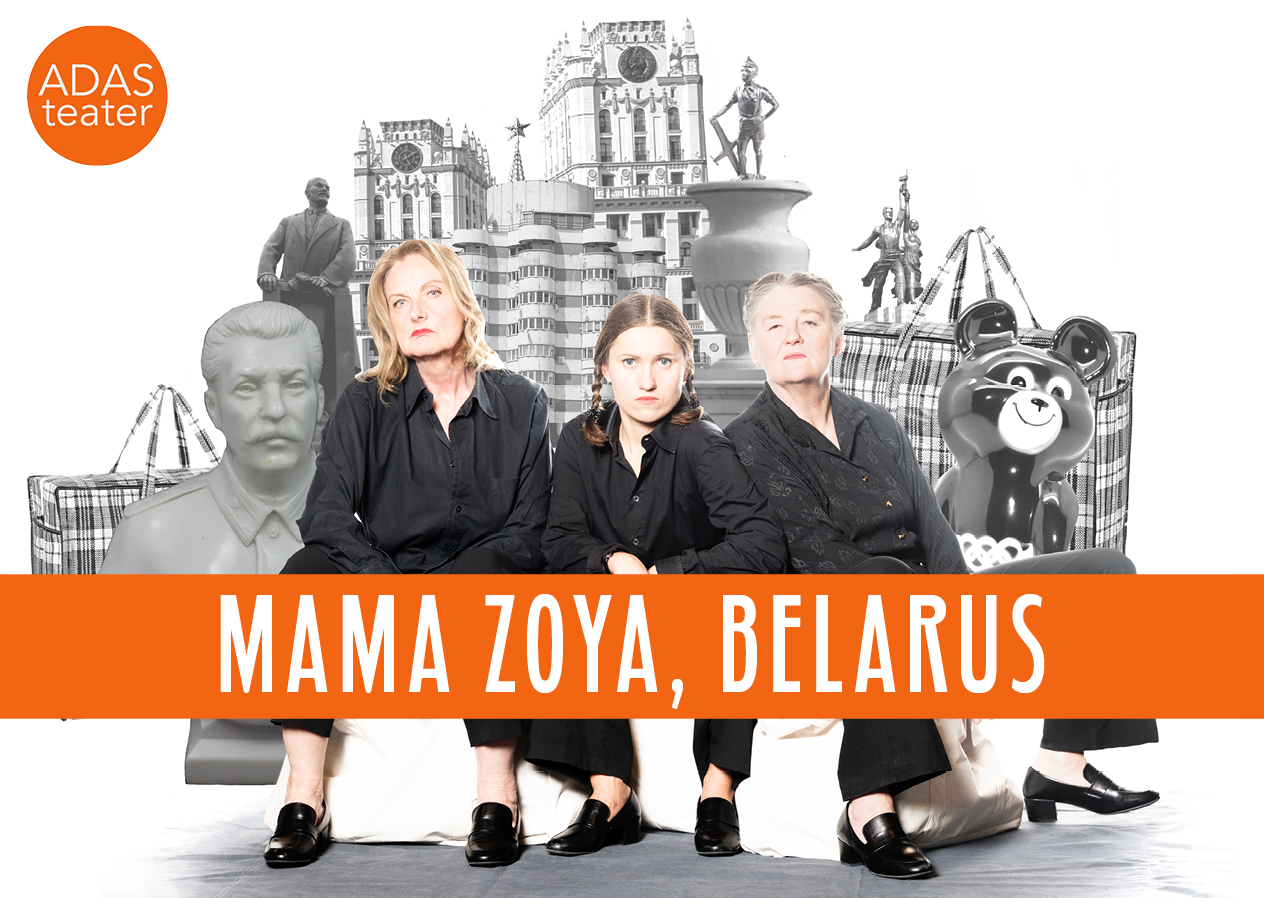Professional Community

PROJECT ZOYA, OR HOW I BECAME THE OTHER
Aksana Haiko •
Director Aksana Haiko talks about a joint theater project with the Swedish theater ADAS. The project Mama Zoya, Belarus was based on the life story of the director’s mother. Due to differences in views on the work, Aksana had to leave the project. In the text, she analyzes what happened through the lens of postcolonial studies.

Reply to “PROJECT “ZOYA”, OR HOW I BECAME THE OTHER”
Fia Adler Sandblad •
Fia Adler Sandblad is the artistic director of ADAS Theatre, which she started more than thirty years ago at Konstepidemin in Gothenburg, Sweden. Here, she responds to Aksana Haiko’s text about their joint work in 2021 – 2023.

NEW WEBSITE OF KX SPACE
Partner of the STATUS platform, Brest Space KX presents its virtual incarnation — www.spacekx.com. The website, as the KX Space today, includes the KX Gallery and the Kryly Khalopa Theater. The KX Theater part is still under development, but the KX Gallery is now fully functional online. As before, the presentation and promotion of contemporary […]

GRASSROOTS SOCIOLOGY, DATA HIERARCHIES, AND THE CHALLENGES OF POSING RELEVANT QUESTIONS IN AND ABOUT BELARUS
Andrey Vozyanov •
For years, the Lukashenka regime has been suppressing credible statistics on public opinion and independent sociological reports. As a result, the data on Belarus obtained by local grassroot initiatives, independent researchers, and established institutions both within and outside the country are severely distorted.
In this essay, Andrey Vozyanov outlines how sociological work is hindered on many levels in Belarus, and describes how various groups in the society try to compensate for this deficiency. Vozyanov also addresses the marginalization of the leftist voices within the international public debate on the subject and presents arguments for more flexible and sensitive ways to approach empirical data given the major challenges that sociological work faces in the country.

WOODEN COMPASS IN THE FOREST OF MEMORY
A.Pashkevich •
Japanese writer Yoko Ogawa, the author of “The Memory Police”, which was published in her homeland in 1994 and translated into English in 2019, considers memories as a determining factor in people’s personality. “Being stripped of your memories is an act of violence that is perhaps akin to having your very life taken”, she concludes […]

CAN YOU STRUGGLE WELL ENOUGH? NGO WORKERS AMIDST THE BELARUSIAN PROTEST
Andrey Vozyanov •
Social anthropologist Andrey Vozyanov, analyzing his own experience and the evidence from his colleagues, reflects on the status of NGO workers in Belarus amidst the ongoing 2020 protests: “According to numerous critics of the protest movement, none of the protesters in Belarus are doing it right. Frustrated by the fact that the protest has not immediately resulted in the regime’s fall, different groups within it are blaming each other.”

OPEN LETTER FROM THE INTERNATIONAL ART COMMUNITY IN CONNECTION WITH THE ARREST OF THE ARTIST NADEZHDA SAYAPINA AND OTHER CULTURAL WORKERS
Nadezhda Sayapina is now free and safe, but many cultural workers – as well as hundreds of other citizens of the Republic of Belarus – remain in prison cells or will get there in the future. We publish this open letter with a video message from Nadezhda alongside with the extensive list of signatures to once again express our solidarity and support.

PRODUCTION DRAMA: LABOR AND LAZINESS OF ARTIST IN BELARUS
Aleksei Borisionok •
In this essay, curator and writer Aleksei Borisionok addresses labor structures and working conditions within the artistic field of the USSR and Eastern Europe, and continues with a closer look at Belarus, focusing on its outrageous “parasitism tax” and the artistic reactions to it.

CURATORS, LIBRARIANS, SOCIAL PARASITES: OUR LEGAL STATUS AS CLARIFIED BY A LAWYER
Alena Chekhovich •
Alena Chekhovich, a lawyer from a Belarusian human rights organization Human Constanta, examines the Culture Code in detail, discussing in simple terms the concepts of cultural and creative workers, registration and taxation of the activities of creative workers, the process of obtaining a certificate of a creative worker and much more.
